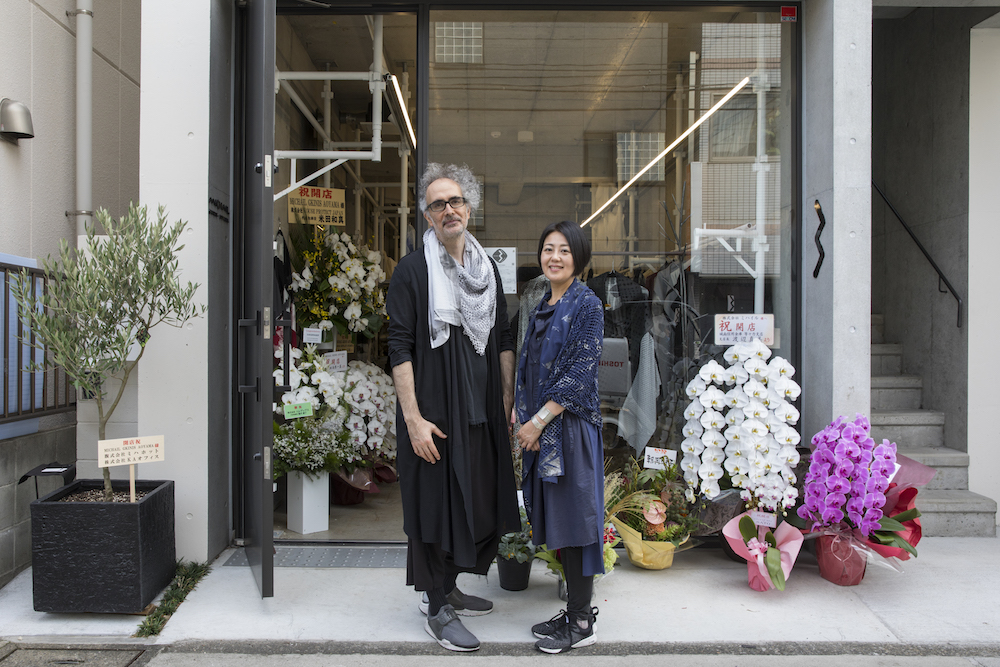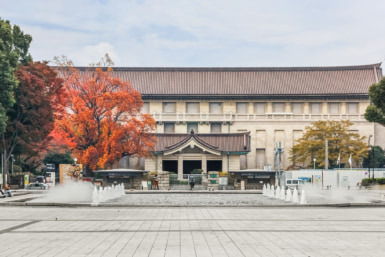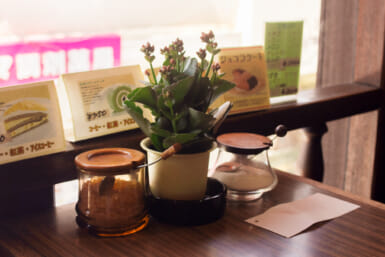Todoroki is, arguably, one of Tokyo’s most charming areas. Famed for its lush valley and abundance of nature and tranquility, many Tokyoites visit in order to maintain their sanity and for some much-needed respite.
Todoroki is also home to Michail Gkinis-Aoyama, one of Tokyo’s most intriguing and genre-defying fashion designers. Headed by Greek creative Michail Gkinis and his wife Yuko Aoyama, the brand has been based in the Todoroki area for around seven years. The company’s first atelier and by-appointment store overlooked Todoroki Valley and was a beautiful example of stark industrial architecture.
This year the couple opened their first atelier and store a few minutes walk from Todoroki Station and are bringing the good people of Setagaya-ku some magnificent examples of artisanship, one-of-a-kind creations and a bespoke, made-to-order service.
Michail Gkinis: Champion of Japanese Textiles
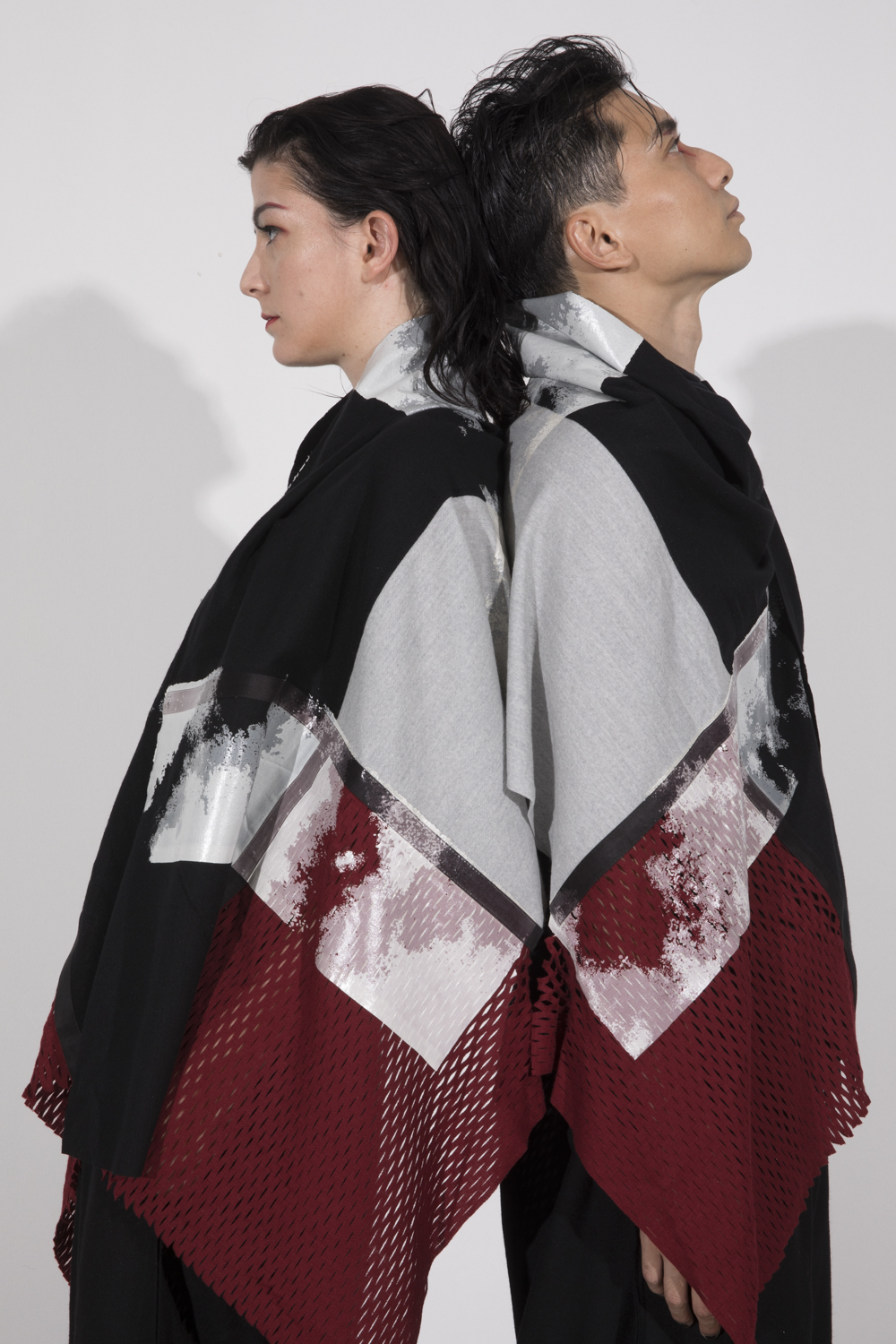
Photo by Androniki Christodoulou
Gkinis, a graduate of London College of Fashion, made the history books as the first foreign intern at the legendary Japanese brand Issey Miyake where he learned and strengthened his craft before going on to work on several projects and brands which earned him the patronage of Hollywood actor and all-round fashion leader Jared Leto.
Michail Gkinis-Aoyama focuses on stoles and capes, as well as, from time to time, other apparel such as beautifully crafted suede bomber jackets and masks. Many of the stoles are one-of-a-kind as Gkinis handpaints on them, never creating the same design twice.
Using material such as cotton, silk and wool, the charming Greek designer champions Japanese textiles and has fostered a series of relationships with textile manufacturers over the past decade. Each stole can be transformed into capes or coats and can be adapted to create 10 different silhouettes giving the wearer a degree of individuality and choice.
Wabi Sabi – Accepting Life’s Imperfections
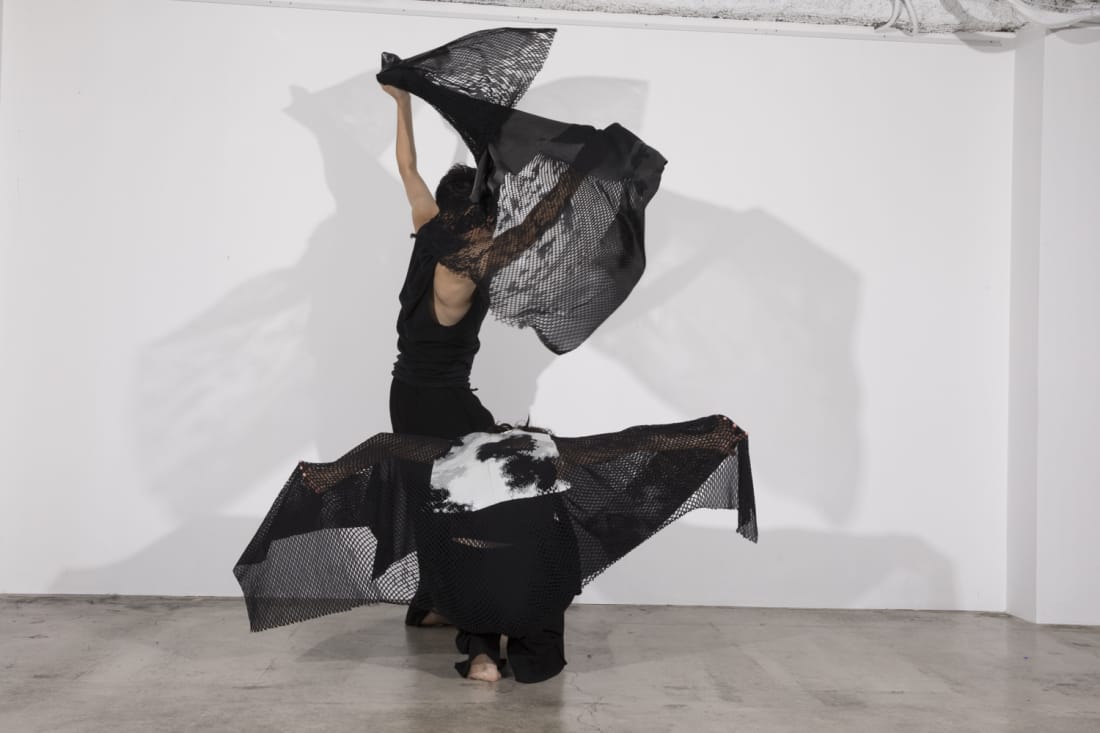
Photo by Androniki Christodoulou
Gkinis is also a proponent of fusing different textiles together and often uses pig leather (which is lightweight, adaptable and said to be the best quality) making him one of the only designers in the country that uses the material for stoles and accessories. Usually pig leather is used mainly for handbags and footwear.
He developed a strong relationship with a pig leather manufacturer based in Sumida, about 10 years ago, and has continued to work in collaboration with them. Sumida, incidentally, used to be the home and hub of pig leather manufacturing and artisanship in Tokyo. Few of these shokunin (artisans) remain, however.
Gkinis, in a recent interview with Tokyo Weekender, says, “The hand-painted stoles are one of a kind. Some of them can be folded much like origami. We fold it in one way and then half it and it creates something else entirely. We spread and open it and it reflects a kind of wabi sabi philosophy which translates the concept into reality.”
Michail Gkinis-Aoyama: Opening a New Store Amidst a Global Pandemic
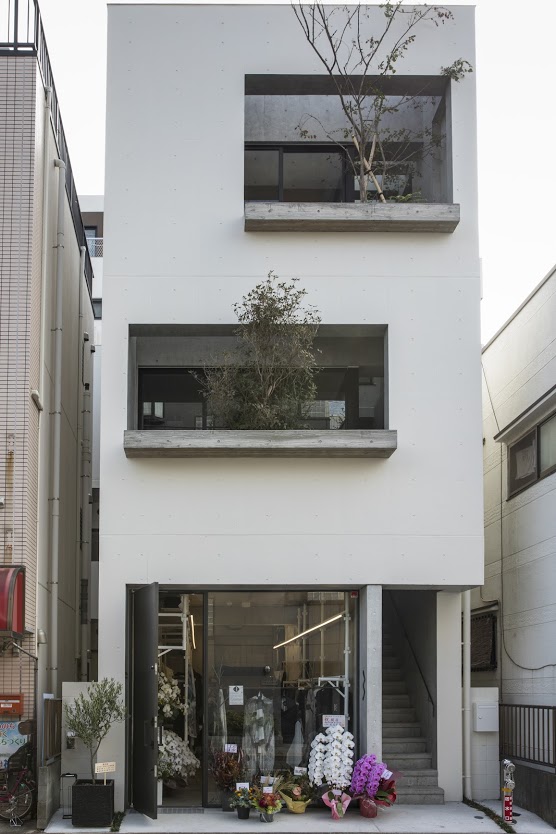
Photo by Androniki Christodoulou
Opening an atelier and store during a global pandemic isn’t easy, however Gkinis and Aoyama remain optimistic about the situation. “During the lockdown we were based in our old atelier which was ideal for us, actually, as the atelier looked onto nature and our customers had more time to contact us from as far away as Kobe,” says Gkinis. “Some creative and freelance people got in touch and we also made clothes for them. My favorite was a hand-painted scarf in rainbow colors that represent hope. Also a well-known actor bought 14 pieces for his play and he even sometimes visits us at our new atelier to catch up.”
The brand, which has held a series of popups in Isetan Shinjuku and Hankyu Umeda and has a strong following in creative industries, has dressed musicians and a string of Japanese actors over the years. Michail Gkinis-Aoyama’s plain cornice stole was given as presents to actors such as Irene Jacob, Tadanobu Asano and Hiroshi Abe, some of the winners of Kyoto Film Festival’s Toshiro Mifune Award.
‘A small factory which sells directly to customers’
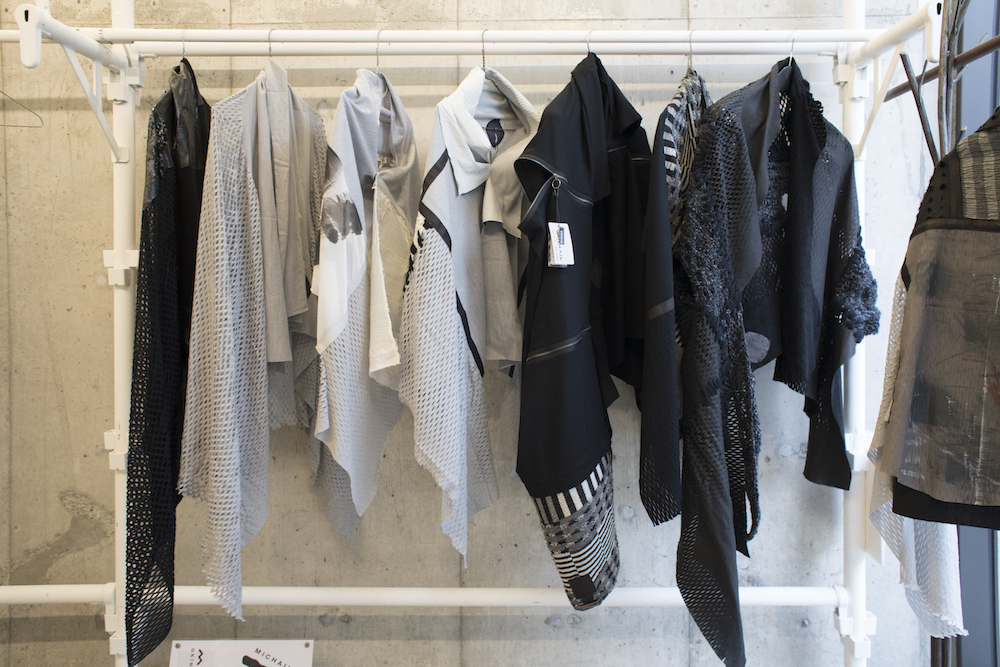
Photo by Androniki Christodoulou
The pandemic, then, forced the couple to refocus their business and adapt a different approach to fashion and the fashion industry which tends to favor wholesale and intermediaries which can be stifling for smaller labels.
Aoyama says, “The reason why we opened this shop is because we love Japanese fabric and we can explain Japanese beauty through it. We want to continue the heritage behind these textiles. Now, at our new store, we can sell straight to our customers. The customer is happy, we are happy because there are no intermediary companies or people involved. Our atelier acts like a small factory which sells directly to customers.”
Gkinis and Aoyama are hopeful that their new atelier and store becomes a communal hub for locals and customers from further afield. They also share live feeds, which showcase the label’s incredible craftsmanship, on the brand’s Instagram page, which also brings them closer to their fanbase and customers.
“Because of the concept of reliability people want to buy from someone they can trust,” says Aoyama. “So that’s what, essentially, we are aiming to be. I want customers to feel relaxed here. Talk about their lives and not only about clothes. People can sit, talk, chill, have a drink and watch video projections and communicate with us and make friends with each other. They all like our stoles so they have something in common and a similar outlook in life.”
Essential Information
Michail Gkinis-Aoyama
1A Kiraku Place, 4-5-9 Todoroki, Setagaya-ku
www.michailgkinis.com
///fails.
Also make sure to follow their Aoyama atelier on YouTube and Instagram.
Feature photo by Androniki Christodoulou
Updated On January 16, 2023

